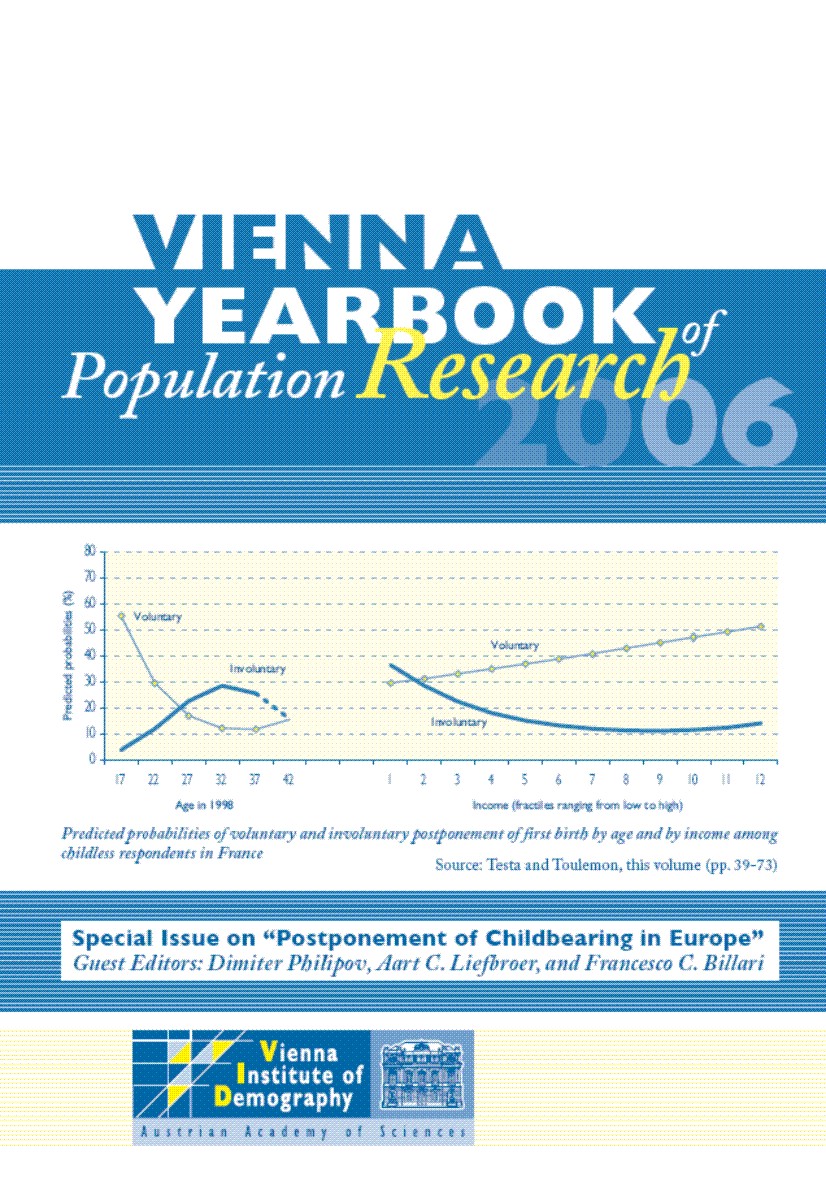
Vienna Yearbook of Population Research 2006, pp. 153-165, 2008/02/22

Contents:
Francesco C. BILLARI, Aart C. LIEFBROER, and Dimiter PHILIPOV: The Postponement of Childbearing in Europe: Driving Forces and Implications; Eva BERNHARDT and Frances GOLDSCHEIDER: Gender Equality, Parenthood Attidudes, and First Births in Sweden; Maria Rita TESTA and Laurent TOULEMON: Family Formation in France: Individual Preferences and Subsequent Outcomes; Ester RIZZI and Alexxandro ROSINA: Does Sex Matter? Ageing and Ability to Conceive; Hideko MATSUO: The Postponement of Motherhood and its Child Health Consequences: Birth Weight and Weight Gain during the First Year of Life; John BONGAARTS and Griffith FEENEY: The Tempo and Quantum of Life Cycle Events; Joshua R. GOLDSTEIN: How Late Can First Births Be Postponed? Some Illustrative Population-level Calculations; Wolfgang LUTZ, Vegard SKIRBEKK, and Maria Rita TESTA: The Low Fertility Trap Hypothesis: Forces that May Lead to further Postponement and Fewer Births in Europe; Dirk J. VAN DE KAA: Temporarily New: On Low Fertility and the Prospect of Pro-natal Policies; Peter McDONALD: An Assessment of Policies that Support Having Children from the Perspectives of Equity, Efficiency and Efficacy